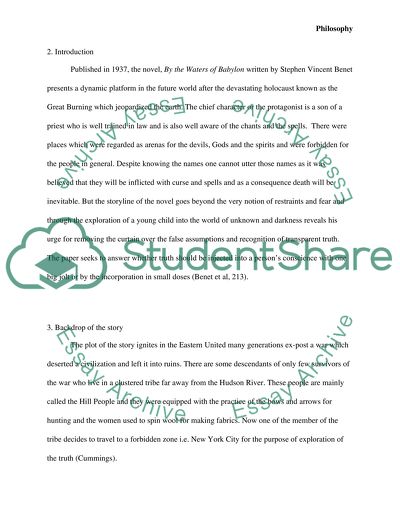Cite this document
(“Truth as an the inevitable attributes of human nature. Based on Essay”, n.d.)
Retrieved from https://studentshare.org/philosophy/1453070-truth-as-an-the-inevitable-attributes-of-human-nature-based-on-stephen-vincent-benets-by-the-waters-of-babylon
Retrieved from https://studentshare.org/philosophy/1453070-truth-as-an-the-inevitable-attributes-of-human-nature-based-on-stephen-vincent-benets-by-the-waters-of-babylon
(Truth As an the Inevitable Attributes of Human Nature. Based on Essay)
https://studentshare.org/philosophy/1453070-truth-as-an-the-inevitable-attributes-of-human-nature-based-on-stephen-vincent-benets-by-the-waters-of-babylon.
https://studentshare.org/philosophy/1453070-truth-as-an-the-inevitable-attributes-of-human-nature-based-on-stephen-vincent-benets-by-the-waters-of-babylon.
“Truth As an the Inevitable Attributes of Human Nature. Based on Essay”, n.d. https://studentshare.org/philosophy/1453070-truth-as-an-the-inevitable-attributes-of-human-nature-based-on-stephen-vincent-benets-by-the-waters-of-babylon.


